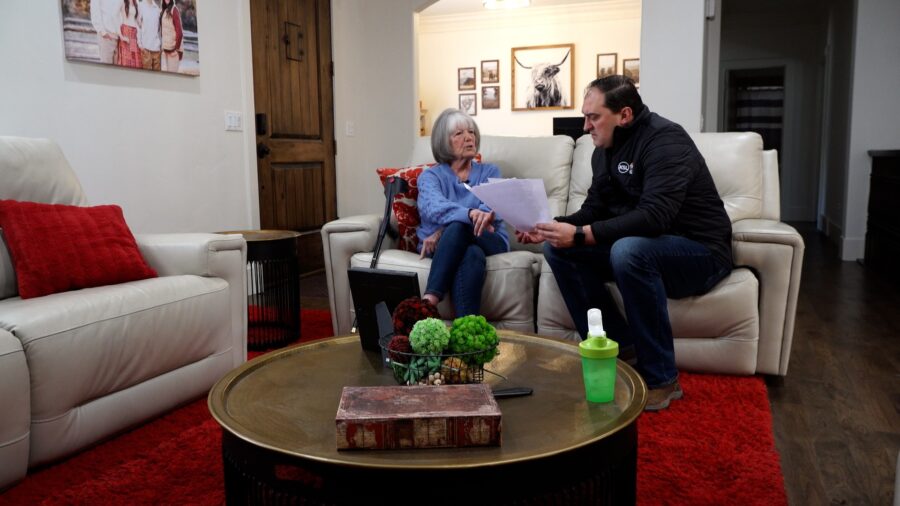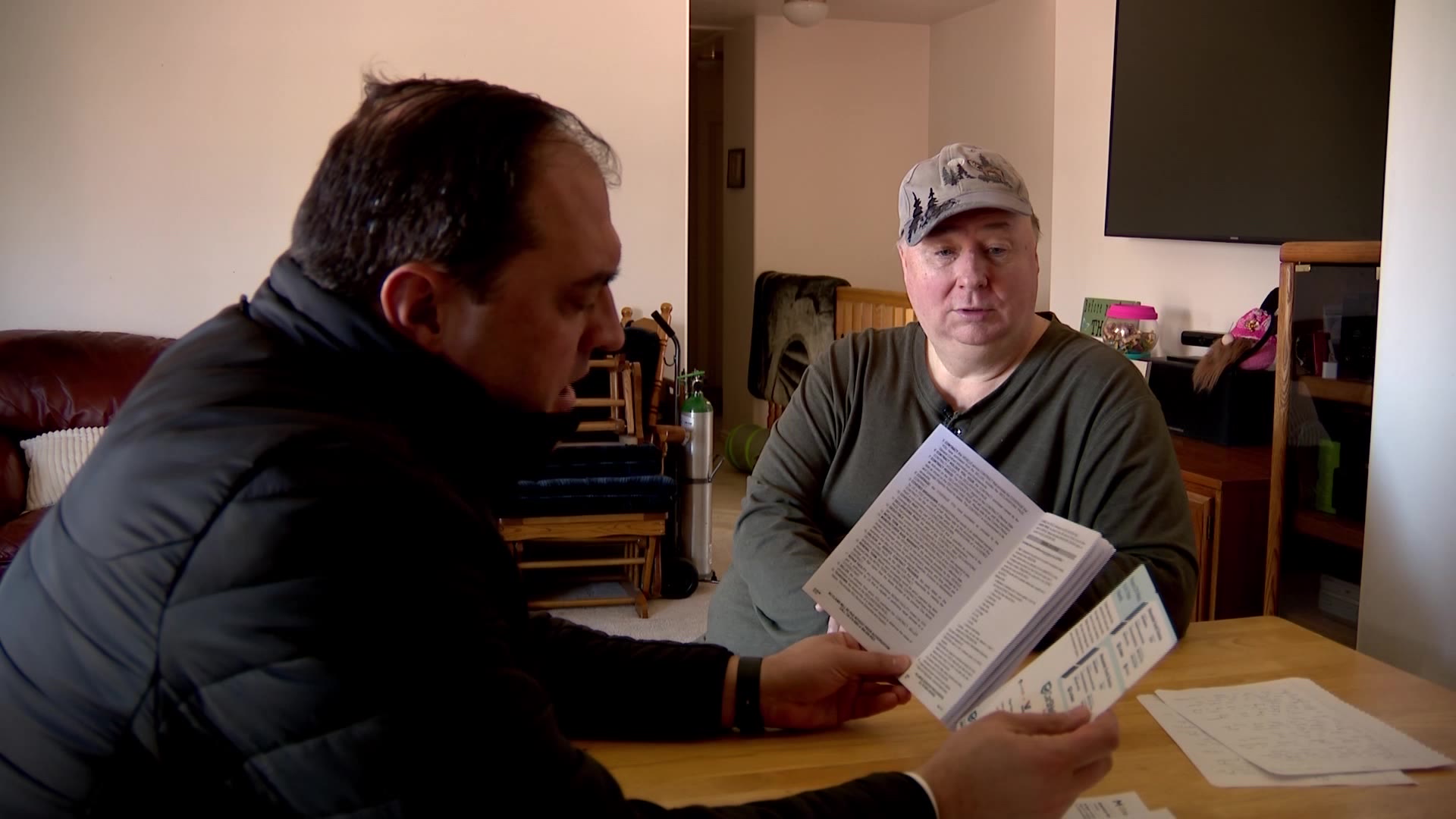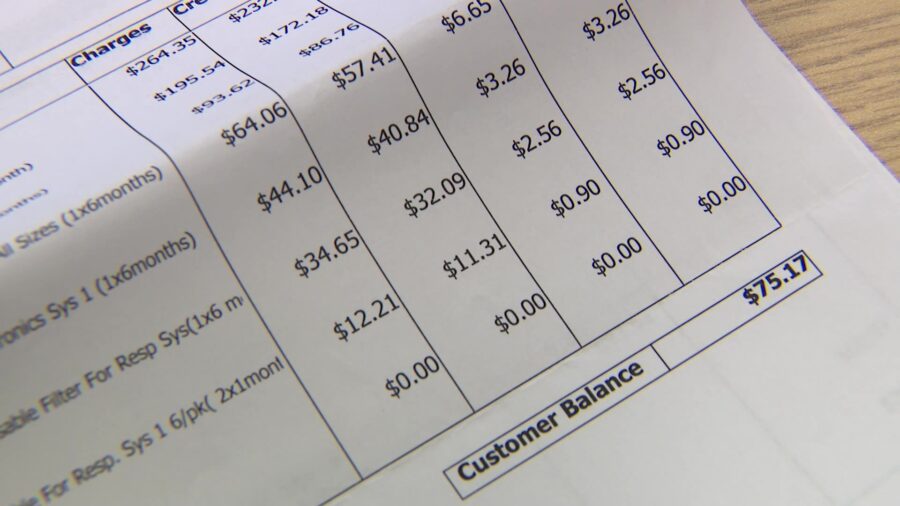Travel insurance trip ups: 3 trips. 3 claims denied. What to know before you buy
Jun 21, 2023, 10:22 PM | Updated: 10:42 pm
SALT LAKE CITY – The ABC islands of the Caribbean – Aruba, Bonaire, Curacao – have been on Michael Cowley’s radar for years.
He and his wife finally booked a cruise to see them.
“The scenery looked incredible,” Cowley said. “We were really excited to go.”
They got as far as Salt Lake International’s main terminal when their red-eye flight to the cruise ship’s pier in Florida got delayed and then scuttled because a flight attendant timed out. She reached the legal maximum number of hours she could work in one day. Without a replacement, Cowley said JetBlue canceled the flight just before departure.

Michael Cowley points to the “ABC” islands in the Caribbean – a destination he hoped to visit before a last-minute flight cancellation upended his plans. (Jeff Dahdah/KSL TV)
Not finding any other flight to Florida before the ship sailed, Cowley canceled the cruise. JetBlue reimbursed the airfare – they must by law. But the trip insurance built into his JetBlue branded credit card refused to cover the $3,600 in cruise costs.
“They said it was due to staff shortage or something like that,” he said.
Cowley isn’t the only traveler frustrated by trip insurance that didn’t pay out.
“It is a lot of money for us,” Laurel Bjornberg said of the $4,700 she paid for a religious-themed trip. Her tour operator, CruiseBuilder, abruptly canceled, citing inflation and higher travel costs as reasons.

“It’s frustrating. It’s disappointing,” said Laurel Bjornberg after her travel insurance claim was denied. (Josh Szymanik/KSL TV)
We’ve reported on CruiseBuilder before; they stopped responding to the calls and emails of many KSL tipsters.
But surely, Bjornberg’s AIG Travel Guard policy would have her back?
The policy states that the financial default of a travel supplier is a covered reason. Still, they refuse to pay.
“It’s frustrating. It’s disappointing,” she said, “that companies just don’t come through.”
And another traveler is equally frustrated.
“I thought it was going to cover a cancellation,” Dale Heiser said about the trip protection plan he bought from Priceline for his flight to Sacramento. He said it promised reimbursement if he had to cancel.
As luck would have it, he did have to cancel. No sweat, right? Travel insurance to the rescue! Only, his claim was denied – it was not a covered reason.

Dale Heiser reviews his travel insurance paperwork with KSL’s Matt Gephardt after his claim for a flight he canceled was denied. (Tanner Siegworth, KSL TV)
“I felt like I bought a bad product really,” Heiser said.
Knowing the fine print
Three trips protected with travel insurance. Three claims denied. And three viewers contacted KSL for help. They asked if travel insurance will not pay, what good is it?
“We strongly recommend it,” said longtime travel agent Larry Gelwix of Morris Columbus Travel. “It’s kind of like my car insurance. I hate paying that bill. I really do. Even if it were legally optional, I wouldn’t dream of driving without it.”
Gelwix said travel insurance can provide financial protection, but a policy will not always cover the things you thought it would or should.
“They’re one-sided agreements, they will protect the insurance company,” he said. Claims often get rejected because of loopholes buried in legalese. “They don’t make money when they pay claims.”
It is why Gelwix says travelers must know the details of their insurance before they travel.
“What and who is included, and what is excluded and under what circumstances,” he said. “Do I understand how they interpret these different phrases, these different paragraphs? Is there a deductible?”
What is included? It might be the death of a family member, a terrorist attack, or a call to jury duty. But do not expect help if you change your mind, bad weather is in the forecast, or you get injured in a high-risk activity like skiing. And if it is not mentioned in your policy, it probably isn’t covered.
“Print the whole policy: the terms, the conditions, the restrictions,” Gelwix said. “Then as you’re reading it, and most people don’t even read it, take a pen and (mark) here’s exclusions or inclusions.”
Finding the fine print
Finding the policy is not always so clear-cut. We found the promise for the policy Heiser bought on Priceline easy enough: “Get up to 100% trip cancellation, trip interruption protection, and more,” it read.
But it took us ten minutes of digging through ten hyperlinks to find the complete details of what is and what is not covered.
Gelwix said to look for user-friendly insurers that offer all that information without the legalese.
If you cannot find an insurer that spells out the coverage you need and don’t need? “Go shopping for a different policy,” he said.
No might not be the final answer
If you feel your claim should have been covered under the policy, contact the Utah Insurance Department for an assist. You can also call at 801-957-9305 or email prop-cas@utah.gov.
Another option is small claims court. There is no law that says you must have an attorney, but in Utah, the maximum you can sue for in small claims is $11,000.













